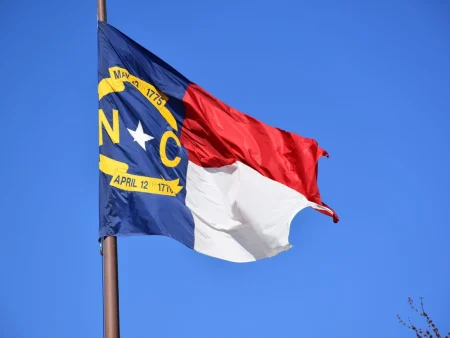The National Collegiate Athletic Association (NCAA) has announced the launch of "Draw the Line", a new campaign aimed at educating student-athletes about sports betting and the risk of gambling-related harm.
The launch of Draw the Line coincides with week one of the 2024 Division I Men’s and Women’s Basketball Championships. This, the NCAA said, is one of the busiest times of the year for betting in the US.
Draw the Line will run across social media channels, raising awareness of the dangers related to sports betting. NCAA member schools and conferences will also have access to a toolkit and supporting resources.
Underage betting and integrity issues for NCAA
Sports betting is now legal in over 30 states and, according to the NCAA, more than half of college-age students have bet on sports at least once in the previous year.
Further research by the NCAA founded 67% of 18- to 22-year-olds on college campuses have taken part in sports wagering. This is of some concern, given that in all states where betting is regulated, the minimum age to legally wager is 21.
Also of concern for the NCAA is the lack of protection and integrity provisions for student-athletes in some states. Last autumn, the NCAA began advocating for states to update sports betting laws to protect student-athletes from harassment or coercion, address the negative impacts of problem gambling and protect the integrity of its competitions.
These efforts have had some impact. In Ohio, student-athletes, campus leaders and the national office worked with gaming regulators to prohibit player-specific prop bets. West Virginia, New Mexico and Maryland have also taken steps to protect student-athletes from betting-related harassment.
“Sports betting is everywhere, especially on college campuses, so it’s critical student-athletes get the real story about how it can impact them and their ability to play,” NCAA president Charlie Baker said.
“We know some bettors are harassing student-athletes and officials. That’s why we are advocating for policy changes at the state level and launching monitoring tools around championships to refer serious threats to law enforcement.
“The NCAA is doing more than ever to protect the integrity of the game and arm student-athletes with the truth about sports betting.”
Ongoing education
The new campaign is the latest initiative from the NCAA to address issues related to sports betting.
In October last year, the NCAA also launched its first sports wagering e-learning module to educate student-athletes about gambling-related harm.
The free module features information, scenarios, Q&As and resources on the risks sports wagering poses to student-athletes. It covers key topics on problem gambling and sporting integrity, in addition to NCAA rules and social media harassment.
The NCAA collaborated with current and former college athletes, as well as campus leaders, to develop the interactive module.
Original Article















